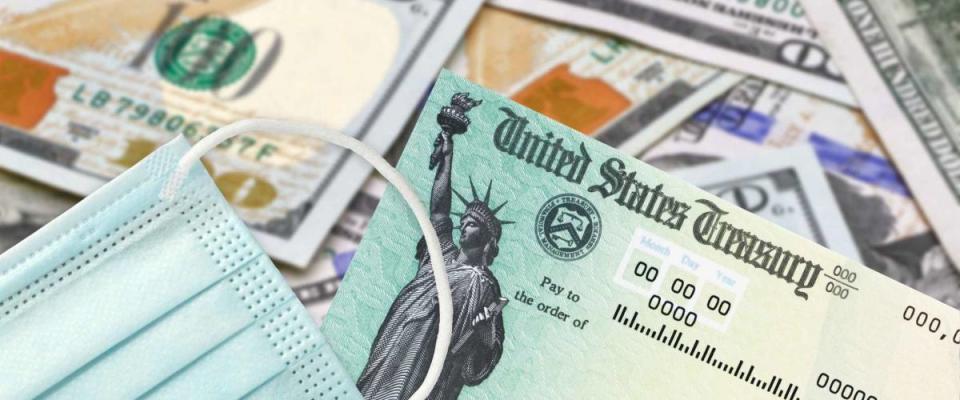The IRS Just Paid Out 2.8 Million Surprise Tax Refunds — Are You Getting One?

Millions of Americans still feeling the financial sting of the COVID economic crisis may be in line to receive a surprise tax refund in the coming weeks, thanks to the pandemic relief bill President Joe Biden signed earlier this year.
The Internal Revenue Service just distributed over 2.8 million refunds to taxpayers as automatic payments — meaning you don’t have to fill out any forms or sit on hold for an hour to get your money.
An unexpected refund might be a welcome windfall if you’ve been hoping for a bit more government money to help with expenses or to pay down debt. Here's a look at whether you might be getting some cash back from the IRS.
Who's getting these tax refunds?

Millions of Americans who lost their jobs during the first nine months of the crisis (including some who might still be looking for work) were forced to file for unemployment benefits for the first time as businesses closed or cut back operations.
Normally, unemployment benefits are taxed like any other income. But the pandemic rescue package Biden signed into law in March excludes from 2020 taxes up to $10,200 in unemployment compensation per taxpayer, or $20,400 for couples filing jointly.
Those who filed their taxes ahead of the COVID relief law may have overpaid based on what they thought they owed. If your income was below $150,000 in 2020 and you claimed federal unemployment benefits last year, you may have a surprise refund coming.
Some 40 million Americans received unemployment payments in 2020, according to the Century Foundation. The average beneficiary got $14,000 — and $10,200 of that is now tax-free, leaving only $3,800 that's taxable.
So far, the IRS has identified 13 million taxpayers who may be eligible for the adjustment. If you've been hoping for a fourth stimulus check, one of these refunds might be the next best thing, for now.
Surprise refunds will keep coming in waves

The IRS said late last week that it just sent over 2.8 million refunds to Americans who paid too much tax on their unemployment.
If you qualify for money back, you’ll receive the refund either in your bank account or — if the government doesn't have your banking information — as a paper check. The funds also may be applied to any taxes or other federal debts you owe. The IRS is automatically issuing refunds, so there’s nothing you need to do to get it.
The deadline to file your 2020 taxes was extended until May 17. If you missed the deadline, you should file your taxes now — and remember that 2020 unemployment benefits of up to $10,200 are exempt from taxes. That will significantly reduce your tax liability this year.
Another wave of these tax refunds related to unemployment benefits will go out in mid-June, followed by more throughout the summer, the IRS says.
Keep in mind that even though the IRS has waived some federal taxes on your jobless benefits, your state may charge income tax on all unemployment payments you received.
What if you're not likely to get a refund?

If you can’t wait for your refund — or you’re not eligible for one — there are steps you can take to give your finances a boost right now.
If you haven’t been driving much during the pandemic, some car insurers are offering their customers a break. If yours is being stingy, shop around for a better deal. And if you own a home, compare rates to find a lower price on your homeowners insurance.
If you’ve been supplementing your income with credit cards, the high-interest debt that comes with that plastic can be a real money-suck over time. A lower-interest debt consolidation loan can help you slash your interest costs and pay off your debts faster.
Look for ways to save on your grocery and online shopping bills. You can download a free browser extension that will automatically scour for better prices and coupons whenever you shop online.
Finally, if you don’t have much experience — or capital — to make money in the red-hot stock market, download a popular app that allows you to invest your "spare change" — and turn pennies into a diversified portfolio.

 Yahoo Finance
Yahoo Finance 